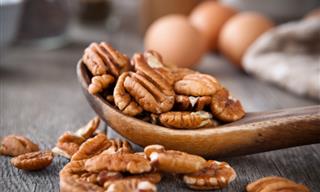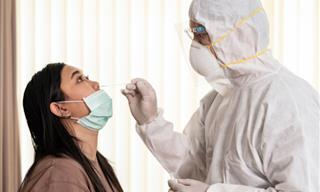Barberries are long, red berries that grow on tiny shrubs of the same name. Their unmistakably sour taste makes them a suitable accompaniment to both savory and sweet cuisines. Botanically known as Berberis vulgaris, these berries are a part of the Berberiaceae family.

The plant is native to parts of Europe, Africa, and Asia, but it is now found throughout the world. Barberries have a rich historical presence in traditional medicinal practices in both the eastern and western regions. These practices have found barberries valuable in mitigating a variety of health concerns, including constipation, heartburn, diarrhea, and malaria. The plant's bark, root, stem, leaf, and fruit all contribute to its extensive use for therapeutic purposes.
A number of beneficial compounds are found in them, most notably berberine, which is a powerful antioxidant that may help improve diabetes management, treat dental infections, and prevent acne. Let's discover some more great health benefits of this underrated berry.
1. Rich in nutrients

Abundant in essential nutrients, barberries contain significant amounts of carbohydrates, fiber, and numerous essential vitamins and minerals. Particularly noteworthy is their impressive vitamin C content, an antioxidant recognized for its potential to safeguard cells from damage that can contribute to ailments like heart disease and cancer. Analyzing a 1/4-cup (28-gram) serving of dried barberries reveals the following nutritional profile:
- Energy: 89 calories
- Protein: 1 gram
- Fat: 1 gram
- Carbohydrate: 18 grams
- Dietary Fiber: 3 grams
- Vitamin C: 213% of the Daily Value (DV)
- Iron: 15% of the DV
Furthermore, barberries contain zinc, manganese, and copper, all of which play important roles in immunity and disease prevention.
The berries' brilliant red color is due to anthocyanins, which are plant chemicals that may improve your brain and heart health, among other things.
2. May help improve cholesterol levels
The presence of berberine in barberry plants has shown promise in positively influencing cholesterol levels. This is achieved through the potential reduction of low-density lipoprotein (LDL) cholesterol and triglyceride concentrations. LDL cholesterol is considered "bad" since it can migrate into arterial walls, and triglycerides are a category of fat circulating in the bloodstream.
3. May help manage diabetes

Berberine found in barberries might have a role in diabetes management, as it could improve the cellular response to insulin, the hormone responsible for regulating blood sugar levels. Therefore, this might contribute to reducing the elevated blood sugar levels associated with diabetes.
In a 3-month study of 36 persons with type 2 diabetes, consuming 1.5 grams of berberine per day resulted in a substantial 2% reduction in hemoglobin A1c — a measure of your average blood sugar control over the previous 3 months — when compared to baseline readings.
In another 8-week study of 30 people with type 2 diabetes, taking 2 mg of dried barberry fruit extract every day resulted in lower hemoglobin A1c levels and lower blood sugar levels.
4. Effective in diarrhea treatment

For centuries, barberries have been used to ease diarrhea symptoms. This is most likely due to its high concentration of berberine, which helps slow down stool transit through your stomach by inhibiting specific receptors, avoiding diarrhea.
One of the oldest human studies on berberine found that it was successful in treating diarrhea resulting from infections caused by certain bacteria, including E. coli.
Also, a trial of 196 people with diarrhea-predominant irritable bowel syndrome (IBS-D) found that consuming 800 mg of berberine hydrochloride per day significantly reduced the frequency of diarrhea and the urgent need to defecate when compared to a placebo.
5. Can protect against congestive heart failure
Berberine may be beneficial to people suffering from congestive heart failure, a condition characterized by inadequate blood pumping by the heart muscle. In a study involving 156 adults with this condition, those administered a daily dose of 1.2 to 2 grams of berberine displayed enhancements in both their exercise capacity and cardiac pumping efficiency. Moreover, a lower mortality rate was observed among berberine recipients in comparison to those receiving placebos.
6. Is good for dental health

Barberry gel has shown promise as a potential treatment for dental issues such as plaque buildup and gingivitis (gum inflammation). A study involving 45 boys aged 11 to 12 discovered that those who used a dental gel containing barberry extract had a reduction in gingivitis and plaque.
The study's findings also revealed that barberry gel was more effective than traditional anti-plaque toothpaste. These results indicate that barberry treatments may benefit tooth health, but additional research is needed.
7. May help fight acne
People suffering from acne may benefit from the consumption of barberry extract. There is evidence that berberine and other compounds found in barberries may have the ability to combat inflammation and infections associated with acne in particular.
A study involving adolescents dealing with moderate to severe acne found that those who ingested 600 milligrams of barberry extract for 4 weeks experienced a significant decrease in the number of skin lesions, as opposed to those who were given a placebo. Researchers concluded that barberry extract may be a safe and effective treatment option for teenagers who suffer from acne; however, further research is required.
How to include barberries in your diet

Barberries have a tart, slightly sweet taste, and can be eaten raw and in jam, as well as in rice dishes and salads. They can also be juiced or brewed into tea.
Dried capsules, liquid extracts, and ointments or gels prepared from whole berries or berberine extract are examples of barberry supplements. However, because of the scarcity of human studies, there is no recommended dosage for barberry or berberine supplements.
Although barberries are considered safe for the majority of people, there have been reports that consuming excessive amounts or taking high supplemental doses may cause stomach pain and diarrhea. To reap the potential benefits of barberries, consider using whole, fresh berries in your cooking.
 Go to BabaMail
Go to BabaMail





























